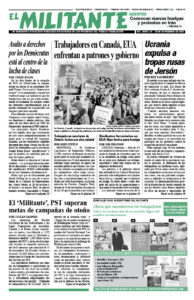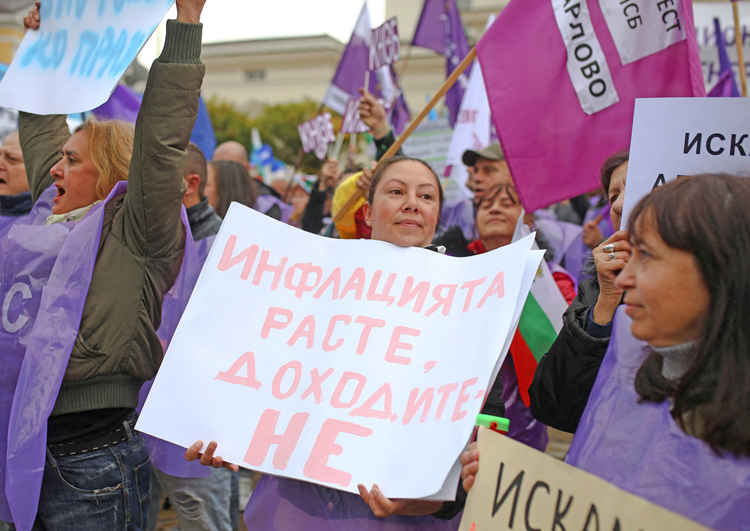Rising prices on basic necessities like food, fuel and housing worldwide have hit working people hard, leading to strikes and other protest actions in countries across Europe this week.
Thousands took to the streets in France Nov. 10 to demand wage hikes to match inflation. Striking rail and health care workers and teachers held protest demonstrations in dozens of French cities. In Paris, strikes shut down large parts of the public transportation system and many schools.
A one-day nationwide strike was organized Nov. 9 by trade unions in Belgium to demand cost-of-living increases to compensate for huge energy bill hikes. Gas prices have risen by 130% over a year ago, the unions say, electricity by 85% and fuel by 57%. Food prices also have soared.
In Greece, workers represented by private and public-sector unions conducted a 24-hour nationwide strike and rallied outside of parliament in Athens the same day.
Surging energy prices and the rising cost of living have also led to sizable protest marches in Germany, Spain, Czech Republic and Hungary in recent weeks. The galloping inflation in the EU is part of a broader capitalist crisis that has been exacerbated by Moscow’s invasion of Ukraine and the cutoff of Russia’s natural gas supplies to Europe.
Working people in Central and Eastern European countries have faced some of the highest inflation rates on the continent, from nearly 16% in Romania to over 20% in Hungary. Prices for staples like bread and cheese rose by 70% on the year in Hungary. In Poland, sugar prices jumped 50%.
“Everything has become more expensive — bread, basic foods, cooking ingredients, everything,” Erzsebet Kristofi, a 47-year-old mother of a child with special needs, told Reuters. She was in line for a free hot meal on the outskirts of Budapest. “That is why I come here, to have some fresh food every day and some bread, pastries or vegetables.”
In Bulgaria, thousands of protesters, organized by the country’s two largest trade unions, rallied for higher pay in front of the parliament building in Sofia Nov. 11. Signs included, “Inflation is rising, our wages are not.”


